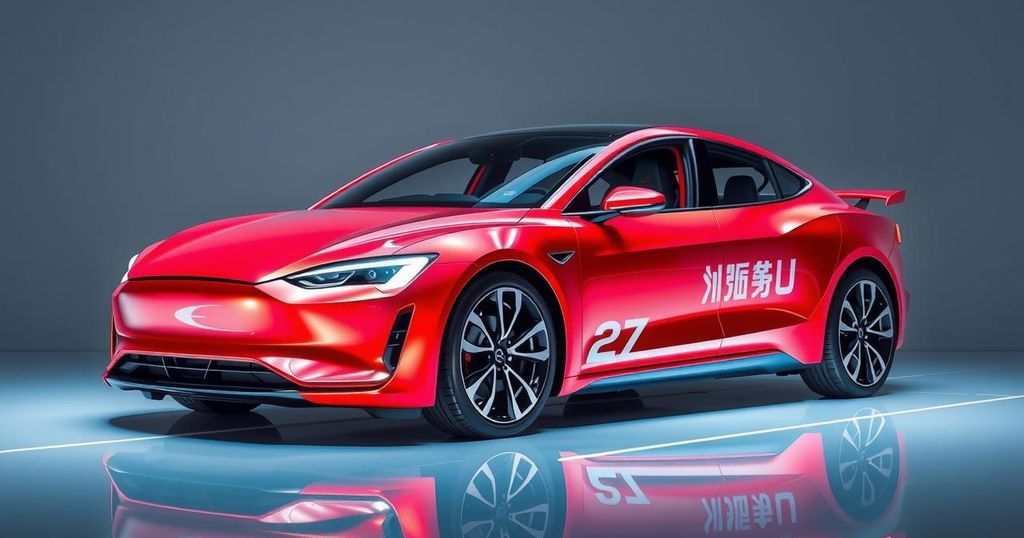Harnessing China’s EV Success: A Call for Global Collaboration

Chinese-made electric vehicles are experiencing remarkable success due to innovation, a strong manufacturing ecosystem, and a competitive domestic market. While facing criticism and trade restrictions from some Western economies, there is significant potential for collaboration. Joint efforts between China and Western countries can enhance technological advancements and facilitate a global transition to clean transportation, aligning with climate goals.
The rise of electric vehicles (EVs) manufactured in China has sparked both admiration and criticism across the globe. While international organizations like the United Nations recognize China’s innovative strides in the EV and renewable energy sectors, Western media often downplay these accomplishments, sometimes citing “unfair practices” as the foundation of China’s success. However, such claims overlook the complex realities driving these achievements.
Three key factors render Chinese EVs competitive: relentless innovation, a robust manufacturing infrastructure, and a vibrant domestic market. Amidst geopolitical tensions and climate change challenges, the Chinese EV industry proves to be a significant opportunity for global cooperation in sustainable development.
China’s substantial investment in research and development since the 1990s has fostered a climate of innovation through collaboration among universities, research institutions, and the private sector. This synergy has translated into practical applications within the industry, nurturing a burgeoning clean energy vehicle market. Notably, this model of innovation is not confined to China alone; countries like the United States and Germany have similarly succeeded by leveraging collaborative efforts to spur technological advancements. The global innovation ecosystem should emphasize collective achievements rather than singular national efforts.
China’s evolution into a manufacturing powerhouse has also greatly influenced the growth of the EV sector. The nation’s efficient industrial value chain—from the sourcing of raw materials to the production of advanced components—facilitates high-quality and cost-effective manufacturing practices. Consequently, Chinese EV manufacturers can rapidly develop competitive products while adhering to rigorous international quality standards. Furthermore, robust competition within China’s domestic market compels manufacturers to enhance product quality and introduce innovative features that cater to increasingly knowledgeable consumers. This environment enables Chinese companies to effectively confront foreign competitors in international markets.
Despite the positive environmental impacts of EVs, certain Western economies have resorted to imposing trade restrictions against China’s burgeoning EV industry. Such measures, including tariffs, not only disrupt market dynamics but may also hinder the transition to green energy while contradicting stated climate commitments. Particularly perplexing is the stance of the European Union, historically a proponent of climate action; limiting access to Chinese-made EVs could obstruct the broader shift towards sustainable transportation.
In light of these trade barriers, Chinese EV manufacturers may consider forming joint ventures and establishing production facilities overseas. This strategy—mirroring tactics employed by Japanese automakers in the 1980s—can enhance competitiveness while addressing employment concerns within host nations. Additionally, Chinese enterprises should contemplate tailored market strategies that emphasize localization and collaborations with foreign firms, facilitating cooperative R&D to accelerate the evolution from traditional vehicles to EVs.
Moreover, both Chinese and Western governments have the opportunity to collaborate in reducing trade barriers and streamlining approval processes for the vehicle industry. Establishing international standards for EV-related technologies, including charging infrastructure and battery safety, can promote interoperability and rebuild trust through transparent mechanisms for dispute resolution.
As geopolitical tensions and economic uncertainties loom, fostering global cooperation emerges as the optimal pathway to address climate challenges. China’s leadership in EV technology presents valuable opportunities for Western automakers to transition towards EVs. Through open markets and collaborative frameworks, innovation can flourish, costs can diminish, and advances toward global climate goals can accelerate. By focusing on shared interests and cooperative initiatives in areas like EVs and renewable energy, countries stand poised to make significant strides in climate action.
The article discusses the global impact and competitive nature of Chinese-made electric vehicles (EVs) in the market. It highlights China’s achievements in the EV sector alongside critiques from Western media and policymakers. The discussion emphasizes the importance of innovation, manufacturing capabilities, and domestic market competition as driving forces behind China’s success in the EV industry. Furthermore, it explores the implications of trade restrictions and the potential for international collaboration to promote sustainable vehicle technology and achieve climate goals.
The global transition to electric vehicles presents a unique opportunity for cooperation between China and Western nations, particularly amidst ongoing geopolitical tensions and environmental challenges. China’s advances in EV technology, rooted in robust innovation and manufacturing ecosystems, can serve as a model for collective progress. By embracing collaboration rather than restriction, nations can drive forward the sustainable automotive movement and meet shared climate objectives.
Original Source: www.chinadaily.com.cn




